International Women's Day: Our Interview with Dr Mayada Haydar
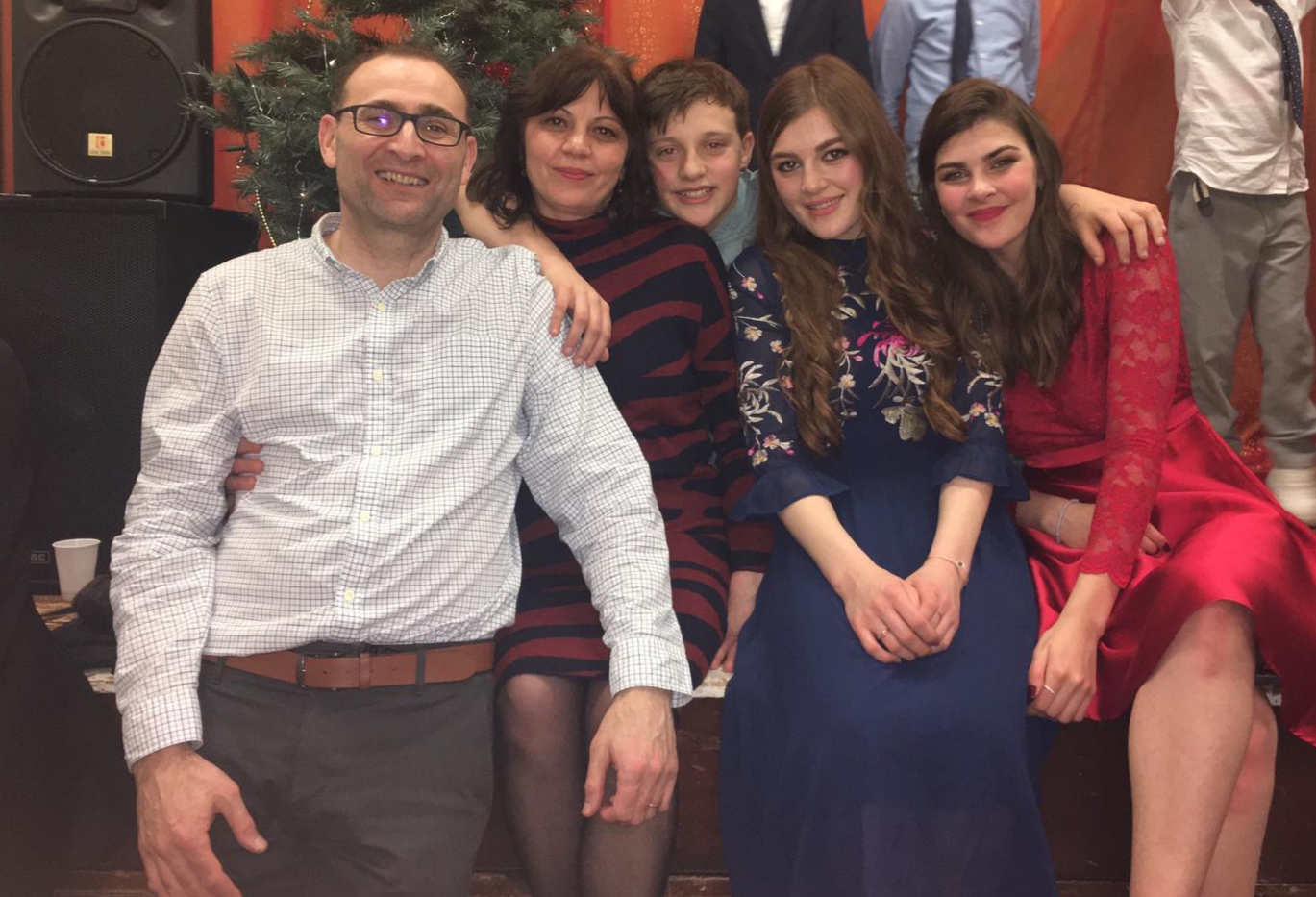
On Tuesday, 8th March 2022, International Women’s Day is marked across the world. It encourages women to campaign for, and imagine, a world of gender equality free from stereotypes and discrimination. The official website refers to this date as being a time to “celebrate women’s achievements, raise awareness against bias and take action for equality”.
This year our Charity is focussing on the celebration of one particular woman’s achievements: Dr Mayada Haydar. A familiar face at the Nightingale Centre at Wythenshawe Hospital (part of Manchester University NHS Foundation Trust) she started her career in Syria. Here, she tells us about moving to England, why she feels so passionately about being involved in the treatment of breast cancer patients, and why she is backing our Build To Beat Breast Cancer campaign – a £3.5million appeal jointly run by Manchester Foundation Trust Charity and Prevent Breast Cancer to fund a new National Breast Imaging Academy training facility right here in Manchester.
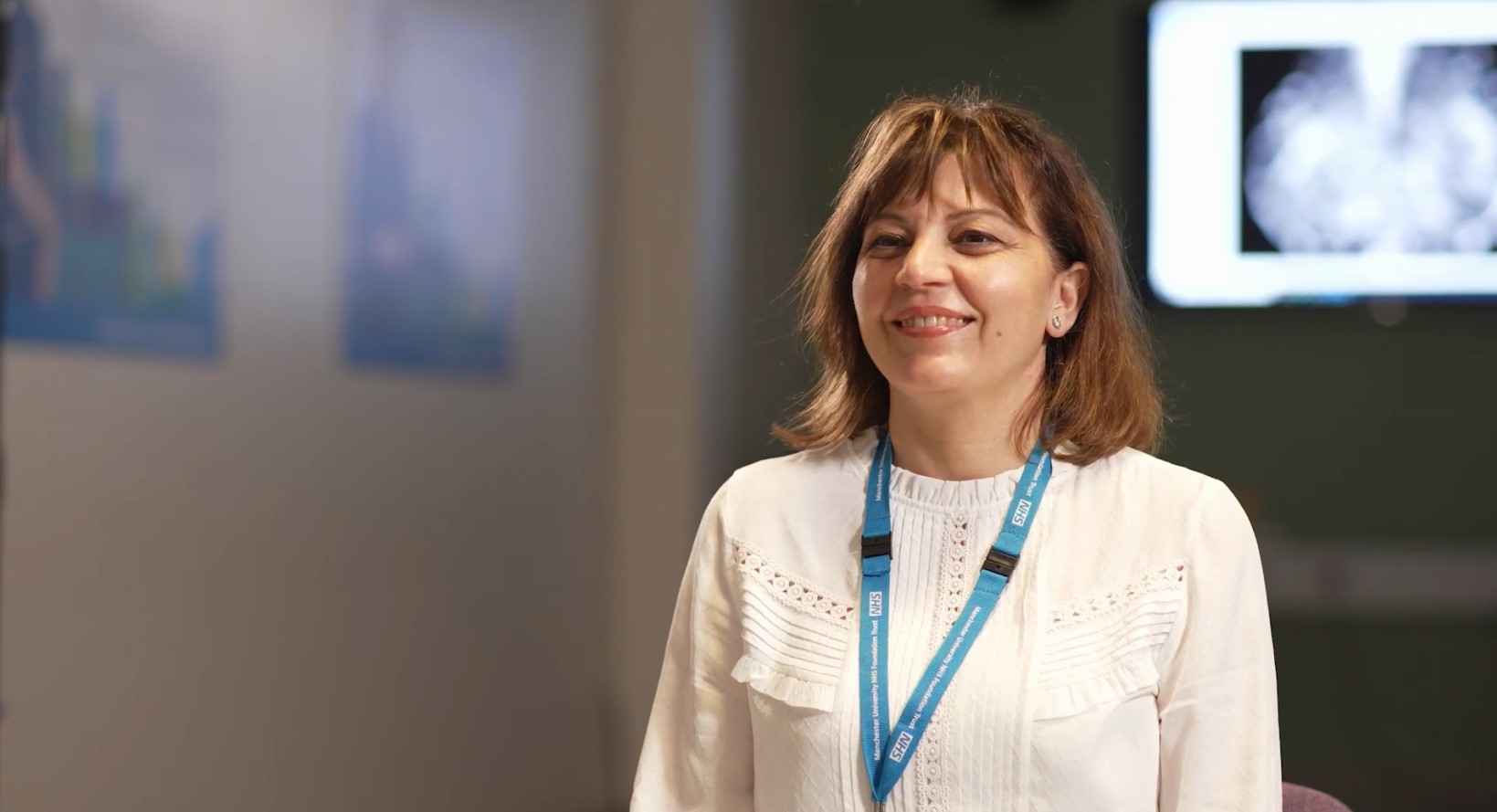
Why did you choose a career helping breast cancer patients?
I just felt that saving women’s lives and early detection of breast cancer is such a worthwhile calling. I feel that I’m doing something valuable – breast cancer is so common but it’s also very treatable, especially with early diagnosis.
It is also important to emphasise that our roles at the Nightingale Centre are not just about treating patients who have breast cancer, but also playing a major role in preventing breast cancer. The Family History Clinic provides a valuable service as a major role in the prevention of breast cancer. Higher risk patients are identified and offered means to manage their risk.
Can you tell us about starting your career in Syria?
My career started in radiology and then I moved to specialise in breast imaging.
During January 2013, I was living in Syria. One evening a car bomb was set off outside our hospital with devastating results. In excess of 30 people were killed with many more casualties. This would have been much worse if it had occurred during the day.
Our whole mammogram department was destroyed. Glass windows shattered everywhere within a 2km radius. The scene was completely devastating and unimaginable. The main hospital was struggling to cope with the causalities so all medics, myself included, rushed to assist with first aid at the scene.
Conditions continued to deteriorate within the country and I realised as a mother my family’s safety was a priority. It was time to flee and move to the UK.
It was a devastating decision because my husband and I had spent years building our lives in Syria. We left our careers, assets, and social network behind. What took us years to build we were forced to leave it on one day.
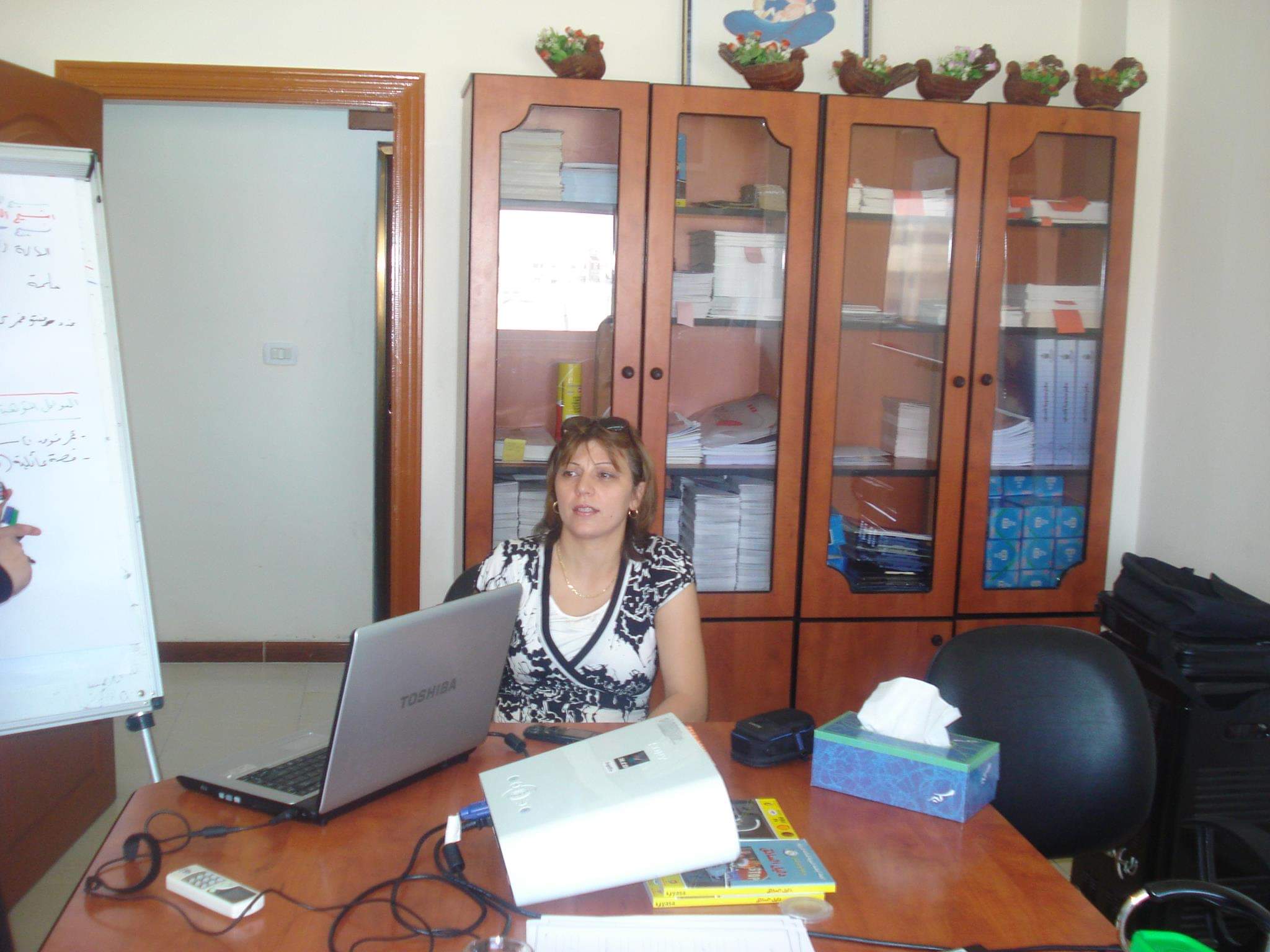 A picture from when Mayada worked in Syria
A picture from when Mayada worked in Syria
What happened when you moved to England?
My mother is English and I have a British passport so we came here. We settled in North Yorkshire where my mother was living.
When I first arrived my Syrian radiology qualifications were not recognised in the UK, so I was unable to work as a Radiologist. I had to do some exams to register with the General Medical Council.
Initially, my eldest daughter arrived in her GCSE year. English is her second language and with a different exam system over here she required my support. My efforts were fruitful in that she progressed into higher education, subsequently qualifying as a Pharmacist. My younger daughter is now studying medicine and is in her third year at university. My son recently secured a place at grammar school and my husband also completed his exams and is working in London as an Ophthalmologist.
My first post following registration with the General Medical Council was in geriatric medicine. However, I was always mindful that at some point I wanted to re-join breast services.
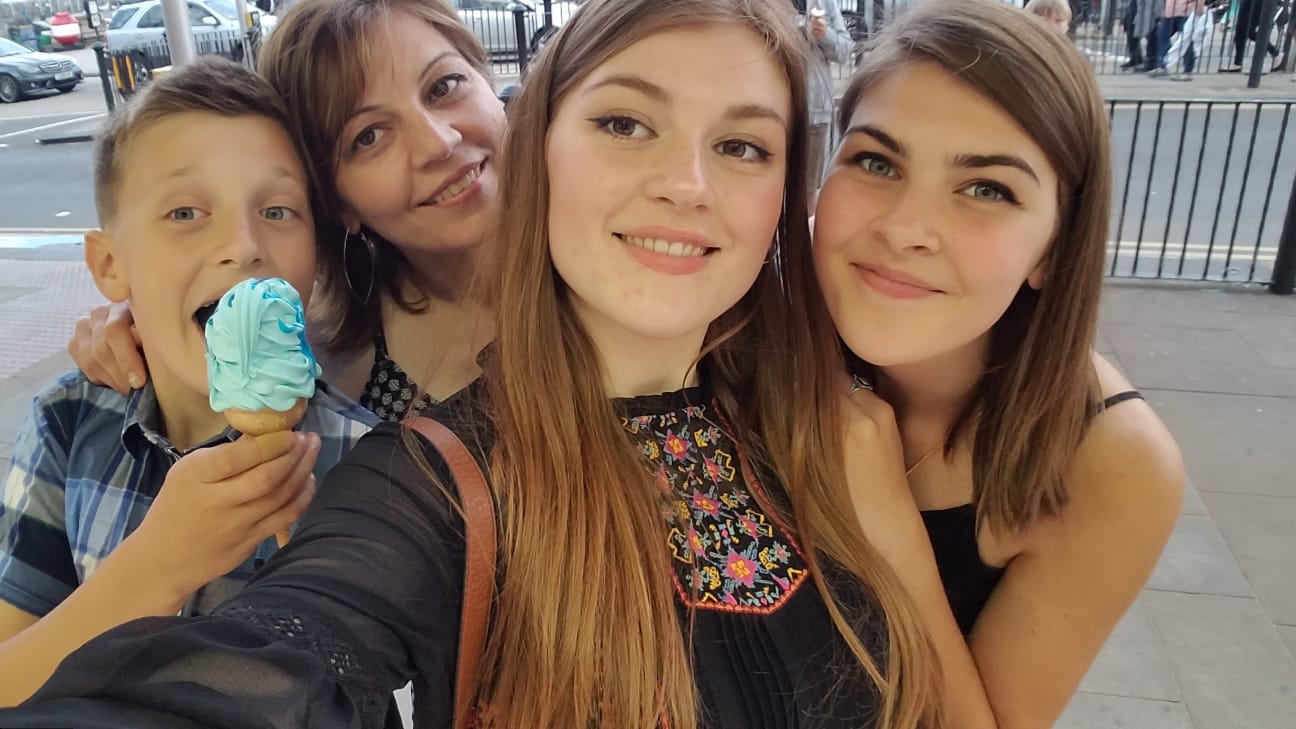 Mayada with her three children
Mayada with her three children
Why did you join choose Manchester?
We moved to Manchester in 2019, as a new credential in Breast Disease Management opened for applications. It was a privilege to be enrolled in the first cohort of this three-year training program.
The programme was developed by the Association of Breast Clinicians (ABC), Royal College of Radiologists (RCR), the National Breast Imaging Academy (NBIA) and Health Education England (HEE).
My training was based at Nightingale Centre, Wythenshawe Hospital, which is part of Manchester University NHS Foundation Trust.
To date I have enjoyed all the aspects of this extensive training course. It prepares me to join the workforce in a variety of clinics, namely, the Surgical Clinic, the Radiology Department and the Family History Clinic. I look forward to completing my training in mid-August 2022.
Last year I won a prestigious award for breast disease training pathway presentation at the Symposium Mammographicum conference jointly with Dr Caroline Parkin.
It is quite interesting that I will be one of the first trainees to finish this course. There are about 12 throughout England on the same scheme.
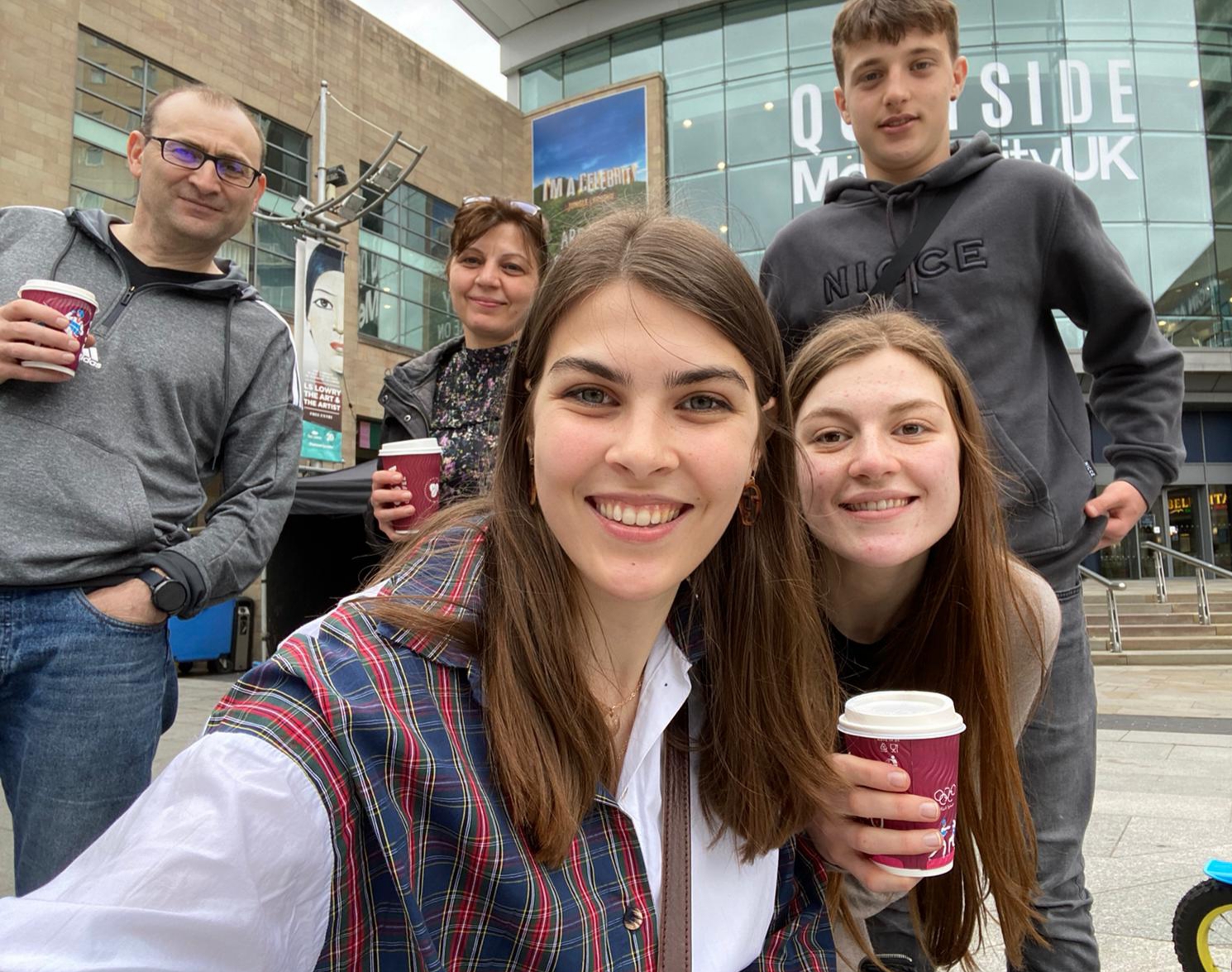 Mayada with her husband and children at MediaCityUK, Salford
Mayada with her husband and children at MediaCityUK, Salford
Why are you supportive of the Build To Beat Breast Cancer campaign?
The campaign is fundraising to build a training academy for breast cancer professionals. The new building will play a key role in tackling staff shortages across the national breast imaging workforce. Furthermore, it will also provide access to specialist training programmes for additional mammographers, radiographers and breast clinicians. This is all essential in order to deliver sustainable breast screening and care services across the country.
The new building will be an extension of the Nightingale Centre at Wythenshawe Hospital, where I currently work.
I know this will be so vital in order to build on the skills that I have already acquired.
The National Breast Imaging Academy is playing a major role in supporting trainees not only in Manchester, but across England, by preparing qualified trainees to join breast service centres all over the country. It is making a major contribution in prevention, screening, identifying patients who have family history and those who are at higher risk of breast cancer. The ultimate goal being to improve breast cancer outcomes.
Do you have a wish for the future?
More lives and more breasts saved!
I would like to see more breast cancers caught early and small surgical procedures performed rather than mastectomies to reduce the need for such a life changing experience. Early screening and treatment is so important, hence the need to train clinicians to carry out those screenings and appointments.
The new training academy and the £3.5million Build To Beat Breast Cancer appeal will go a long way to help achieve this aim.
- Click here to read more about the Build To Beat Breast Cancer appeal.
- To read more about Mayada’s work you can click here.
Stay in the loop
Let’s keep in touch! Sign up here to receive the latest news about charity events and projects, and how you can help, straight to your inbox.